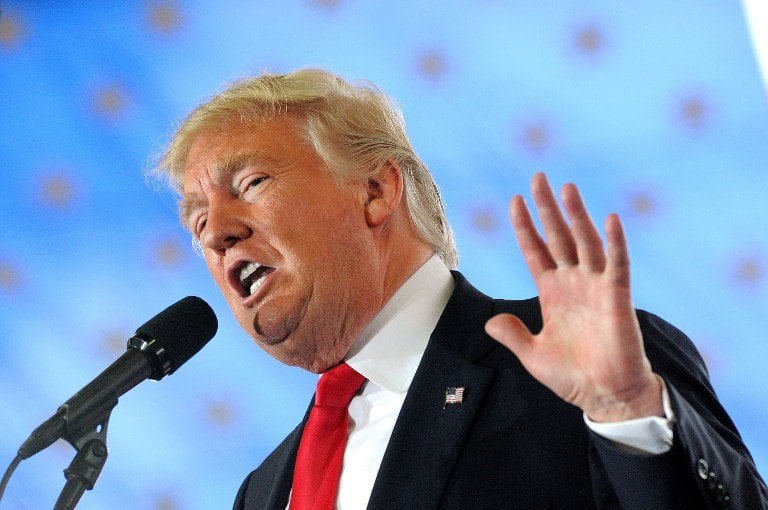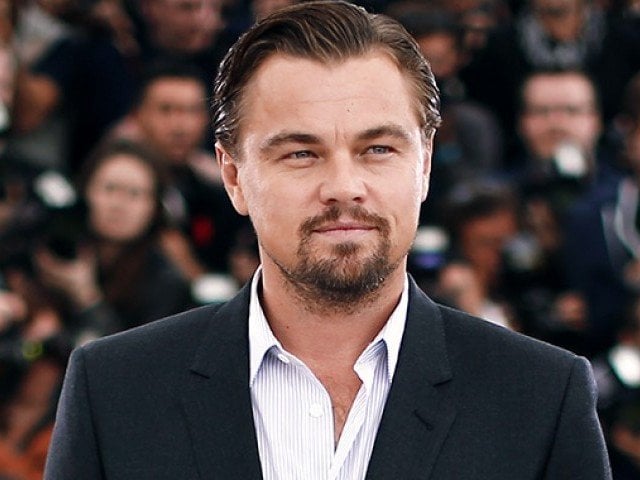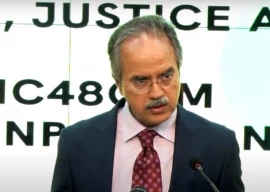
Just three hours after Monday's apparent attack, the US president-elect had branded it the latest outrage in what he sees as a global religious war.
His language was a dramatic departure from how Western leaders generally respond to extremism but reflected the tone of his campaign.
"Innocent civilians were murdered in the streets as they prepared to celebrate the Christmas holiday," he declared, in a statement from his office. "ISIS and other 'Islamist terrorists' continually slaughter Christians in their communities and places of worship as part of their global jihad."
Trump campaign restores 'Muslim ban' proposal on website
Trump made this case before German police released a Pakistani asylum-seeker, arrested after the truck attack, for lack of evidence.
And he spoke even before Amaq, a militant-linked news agency, claimed that the Islamic State group was behind the ramming of the market.
Trump resorted to similar language to condemn the murder, on the same day, of Russia's ambassador to Turkey by a "radical Islamic terrorist."
His decision to focus on the presumed religion of the attackers was a deliberately chosen contrast with the policy of outgoing president Barack Obama.
The seasoned US leader called Germany's Chancellor Angela Merkel on Tuesday to offer his condolences on "the horrific apparent terrorist attack."
"Obama's administration is fighting extremist groups like the so-called Islamic State, but doing so under the banner of "countering violent extremism," said Trump.
He and his generals and diplomats praise the Muslim governments that have joined in the struggle and insist the extremists do not represent a religion.
US Muslims eye future under Trump with apprehension
Secretary of State John Kerry has gone as far as to declare the Islamic State group "apostates" who have twisted the message of a great faith.
Trump, however, has a different set of advisers and apparent beliefs: Extremism can only be defeated if we identify it as springing from Islam itself. During his campaign he proposed a total ban on Muslims travelling to the United States, at least "until we can figure out what the hell is going on."
His national security adviser, maverick former general Michael Flynn, has argued that Islam is not even a religion but a "political ideology."
"They have declared war against us," Flynn said in August. "And our government does not allow us to talk about this enemy."
"This is Islamism," he said of the threat. "It is a vicious cancer inside the body of 1.7 billion people on this planet and it has to be excised.
"We should not fear this idea. We should define it clearly and go after it," he said, summarising the argument of his book, "The Field of Fight."
Trump's clash of civilisations narrative does not just stem from the advice of a former soldier who fought extremists in Iraq and Afghanistan. Another of his closest advisers, incoming White House chief of strategy Steve Bannon embodies a nationalist view with roots in hard right ideology.
Trump fills top jobs for his administration
Bannon has taken a break from running Breitbart, a favorite news platform of the white nationalist "alt-right," to work with Trump.
Breitbart's homepage was dominated Tuesday by the news from Germany, prominently featuring criticism of Merkel's open door to Muslim refugees.
In 2014, Bannon addressed a conservative conference at the Vatican by videolink in part to hail the "enlightened capitalism of the Judeo-Christian West."
This West, however, has in Bannon's view lost its way a little since the fall of its foe the Soviet Union and now faces a new bloodcurdling threat.
"We are in an outright war against jihadist Islamic fascism," he said, according to a transcript of his remarks published by Buzzfeed News.
"And this war is, I think, metastasizing far quicker than governments can handle it," he warned.
Trump's victory will bring this worldview to the White House, but Bannon does not want to stop there - in his view a "global Tea Party movement" is afoot.
In his Vatican remarks he said populist right-wing parties like France's National Front would shed the "baggage" of their association with racism.
Groups like the Front and the UK Independence Party will supplant center-right conservatives, he said.
Two years later, Trump controls the US Republican Party and soon the White House, and Germany's anti-immigrant AfD is blaming the attack on Merkel.

1729161093-0/liam-(4)1729161093-0-165x106.webp)


1732603002-0/lamar-(4)1732603002-0-165x106.webp)












COMMENTS
Comments are moderated and generally will be posted if they are on-topic and not abusive.
For more information, please see our Comments FAQ